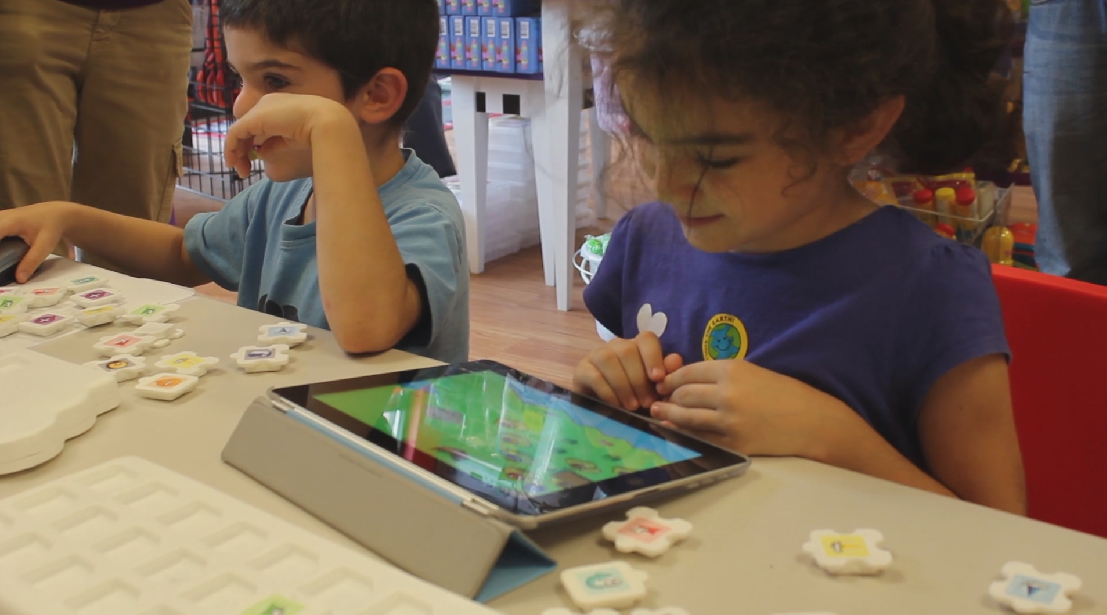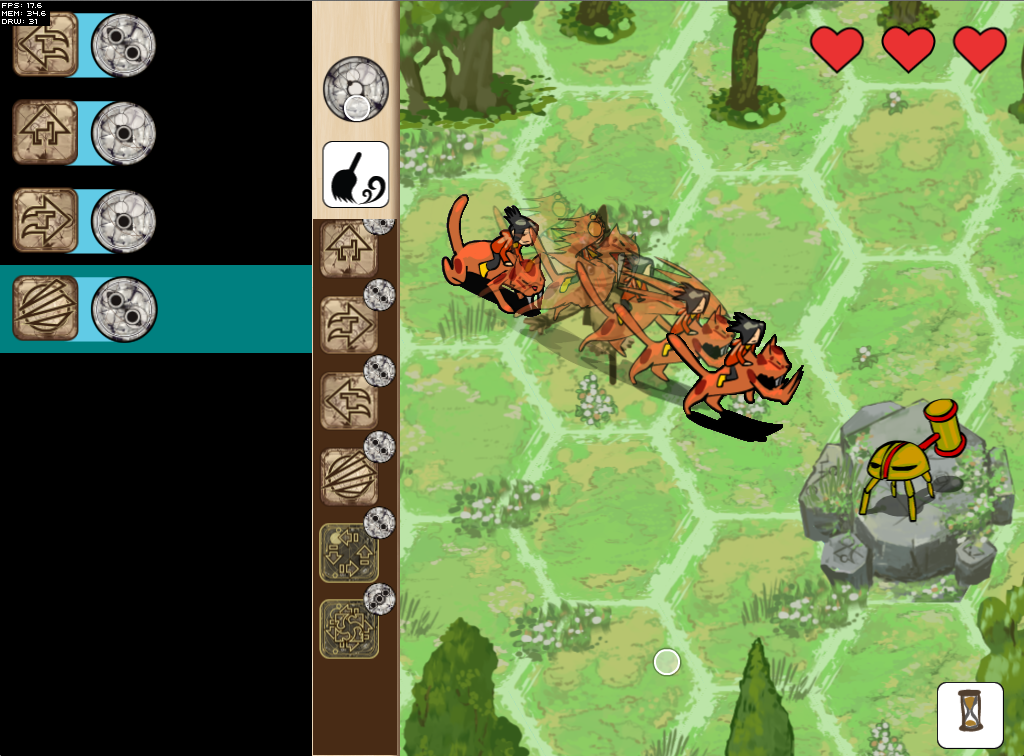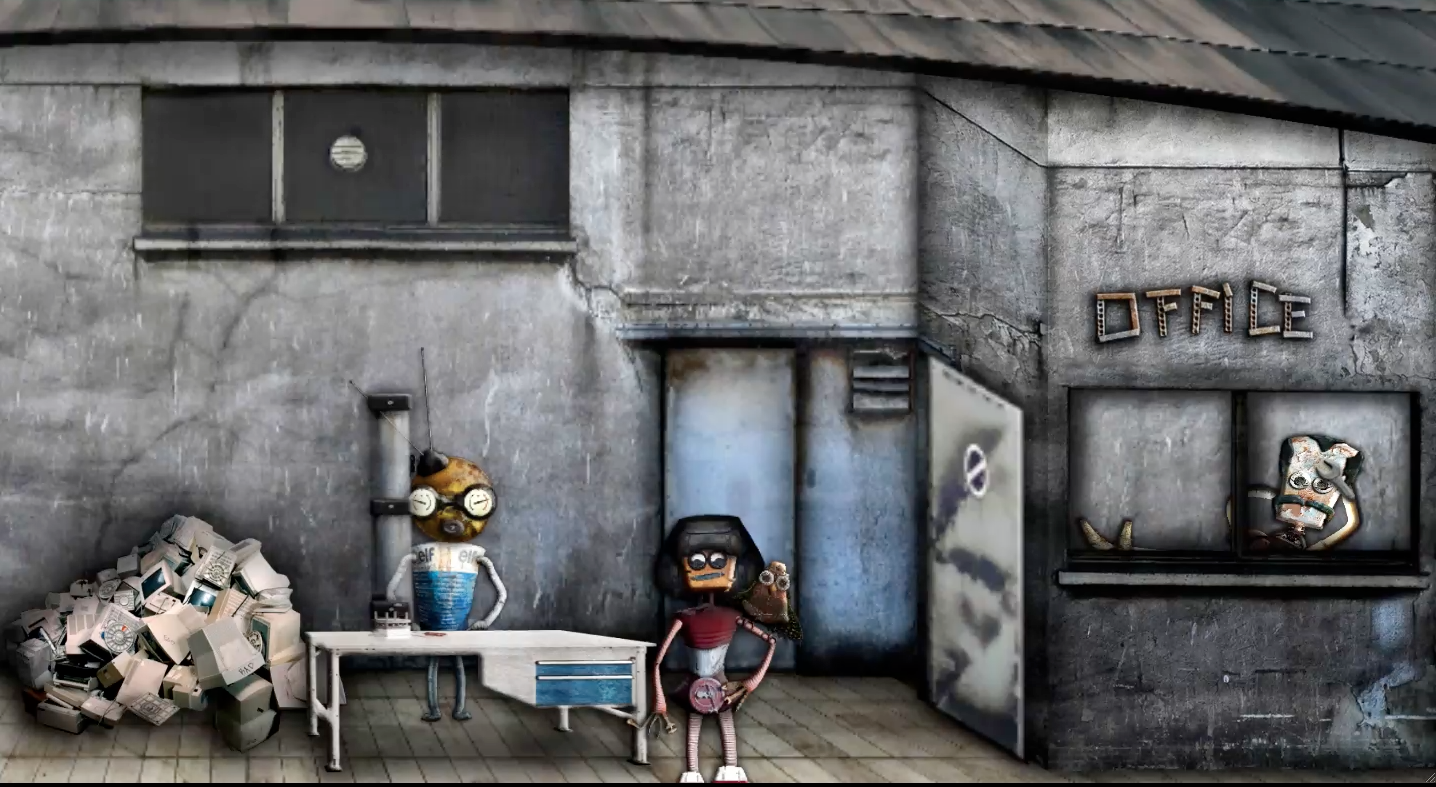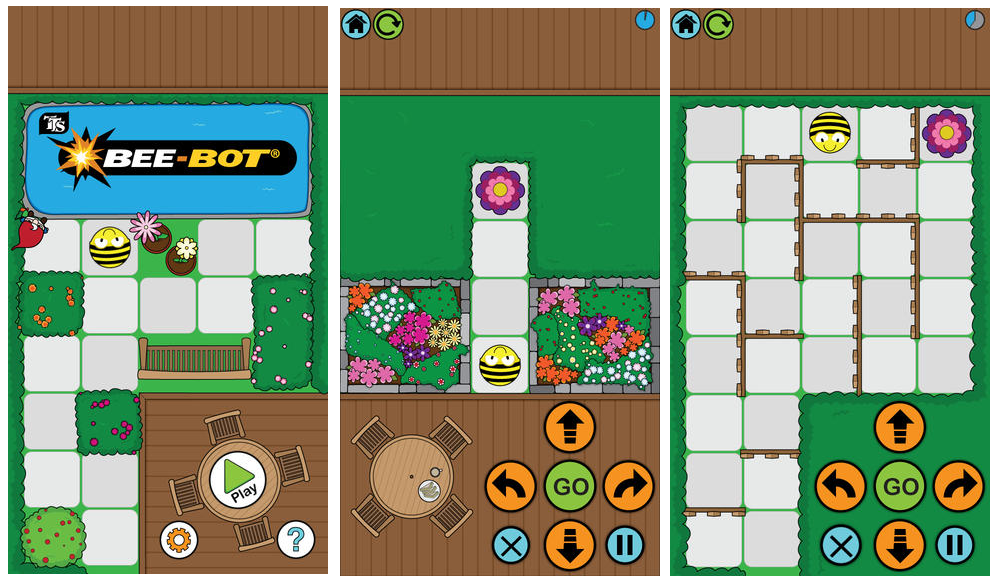Ludos
Who it’s for: Ages 4-12
Platforms: PC, Mac, iOS
Pricing: $119
Find out more: Digital Dream Labs
The expert view: “What sets Cloudboard [Ludos’ board interface] apart from many other products currently available is not only its combination of the physical and digital worlds but also the way that it fosters collaboration.” — Terri Eichholz, teacher of K-5 gifted students, South Central Texas
Due out this August, Ludos aims to make programming a real hands-on experience for younger kids. Ludos allows players to physically place instruction tiles directly onto a grid, programming the actions of on-screen characters.
Cork the Volcano will be the first Ludos game, and it has a strong focus on coding basics like planning, sequencing, and debugging. Other games will also be made available for the system, which is an open platform that anyone can develop for.
Codemancer
Who it’s for: Ages 9-14
Platforms: PC, Mac, iOS, Android
Pricing: $20
Find out more: Important Little Games website – Kickstarter
The expert view: “A fantasy game [with] a female protagonist that teaches kids (& adults!) how to code? I adore every single part of this! ” — Lauren Scott, web developer and junior instructor, Dev Bootcamp
Codemancer is hoping its fantasy story and female protagonist will help it stand out when it releases next summer.
Players will use magical runes to direct the action when this successfully Kickstarted project goes live, helping the hero Aurora to save her father’s life. Creator Robert Lockhart hopes the game’s accessibility will help break down barriers that prevent some kids from coding.
“Codemancer’s language is designed to be accessible,” Lockhart says on his Kickstarter page, “but also translates easily to a variety of popular real-world programming languages. More complex programs are made when we introduce programming concepts like variables, conditionals, and functions.”
Machineers
Who it’s for: Ages 8-14
Platforms: PC, Mac (iPad to follow)
Pricing: Free demo
Find out more: Machineers website
The expert view: “Machineers looks to be the best example of an education game I’ve ever seen.” – Programmer and game developer Paul Hayes
Machineers is an adventure title that lets players interact with broken machines, using coding principles and a drag-and-drop interface to fix them up.
Henrike Lode, a member of the Danish Lohika Games team behind Machineers, decided to market it as a puzzle-adventure after one child tester complained that educational games are like “chocolate covered broccoli.”
“This is preparation for future learning,” Lode told Indie Statik. “We don’t have math or code in there, so [kids] won’t be able to start programming, but [it trains] logical thinking and something called procedural literacy, which is the ability to read and write processes.”
Currently still in development, the PC and Mac demo of Machineers is free to download and play. Lohika Games is targeting an iPad release for the full game.
Bee-Bot
Who it’s for: Ages 4-7
Platforms: iOS
Pricing: Free
Find out more: iTunes
The expert view: “Just pass the device over and watch the trial, error, hypothesis, testing, revising, and ultimate success that will happen.” – Doug Peterson, Faculty of Education sessional instructor, University of Windsor, Canada
Educational developer TTS designed BeeBot to help younger children program with positional language and programming sequences of instructions. The simple, accessible app has 12 top-down timed levels set in progressively difficult mazes.
There’s also a companion app for kids aged 7+, called BeeBot Pyramid. It’s priced at $0.99.
VentureBeat's mission is to be a digital town square for technical decision-makers to gain knowledge about transformative enterprise technology and transact. Learn More





